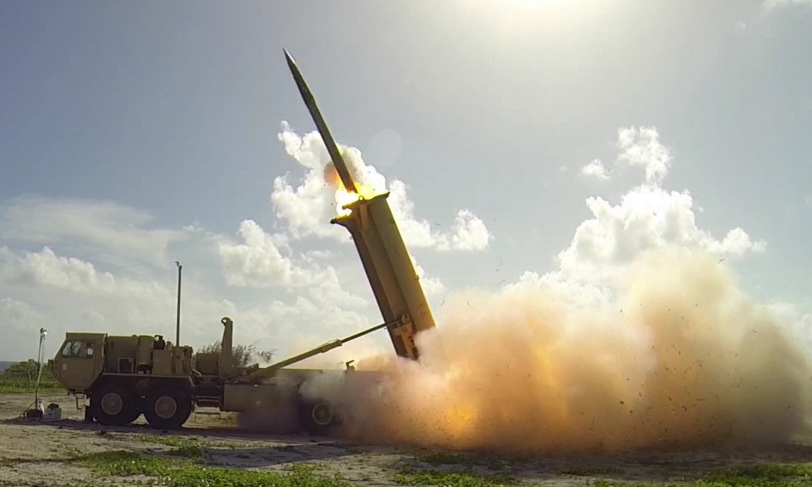Alwaght- Russia and China have warned the US over its continuing THAAD anti-missile system deployment in South Korea with Moscow vowing reciprocal measures.
The warning by the two powerful global powers comes after South Korean President Moon Jae-in has ordered a probe after his Defence Ministry failed to inform him that four more launchers for the controversial US THAAD anti-missile system had been brought into the country.
The Terminal High Altitude Area Defense (THAAD) system battery was initially deployed in March in the southeastern region of Seongju with just two of its maximum load of six launchers to allegedly counter a growing North Korean missile threat. However, Russia and China believe the deployment is just an excuse by the US to target the two countries. Separately on Tuesday, the US military conducted it first-ever reported missile defense test involving a simulated attack by an intercontinental ballistic missile.
Putin vows Russia will respond
Russian President Vladimir Putin has said his country sees the latest development of US anti-missile system in South Korea as a challenge and will not leave it without a response.
“This issue is a major concern for us and we have been constantly voicing it for decades. This disrupts the strategic balance in the world,” Putin underlined while talking to foreign media on the sidelines of the St. Petersburg International Economic Forum on Thursday. “But the world is silent and nobody listens to us.”
“They have elements in their ABM system in Alaska and now in South Korea. Do we have to look at this helplessly and do the same in Eastern Europe? Of course not. We contemplate our response to this challenge,” he added.
Putin said Russia doesn’t believe Western assurances that the ABM system is not directed against Russia and is working on ways to countering it. He said it was de facto part of an arms race.
The Russian president said the US used to justify the deployment of ABM sites in Europe by a perceived threat from Iran, but the nuclear deal with Tehran failed to alter its deployment. So he considers the justification of ABM deployment in Asia-Pacific and the threat from North Korea equally dubious.
“It’s not about North Korea. If tomorrow North Korea declares it is stopping nuclear tests and canceling its rocket program, the US will continue building its ABM system under some new pretext or without one at all,” he said.
China voices concern over secret deployment
Meanwhile, the Chinese government has expressed its deep concern over the omission of information from South Korean government briefings about the deployment of the THAAD missile defense system.
When Chinese Foreign Policy Spokesperson Hua Chunying was asked during the regular press briefing on May 31 to comment about the South Korean Defense Ministry’s omission of information about the delivery of four more THAAD launchers in its briefing to the Blue House, she said that China was “deeply concerned about the relevant situation.”
“The deployment of THAAD by the US in the ROK jeopardizes China's strategic security interests [and] disrupts regional strategic balance,” Hua went on to say, reaffirming China’s standard position. “We once again strongly urge the US and the ROK to stop and call off the deployment of THAAD.”
China, North Korea and Russia believe the objective of the deployment of THAAD deployment is part of a scheme to expand US hegemony. Beijing and Moscow also worry that the deployment would further destabilize the already-restive Korean Peninsula. They also say THAAD’s powerful radar system can penetrate their territory and challenge their security.



























